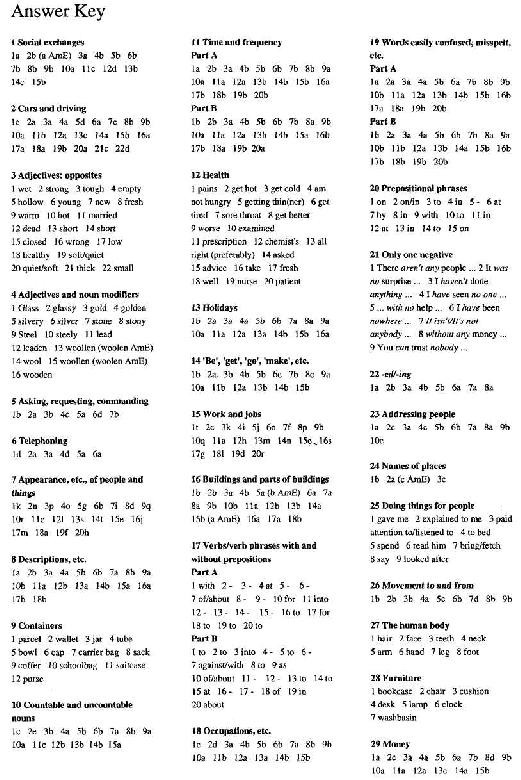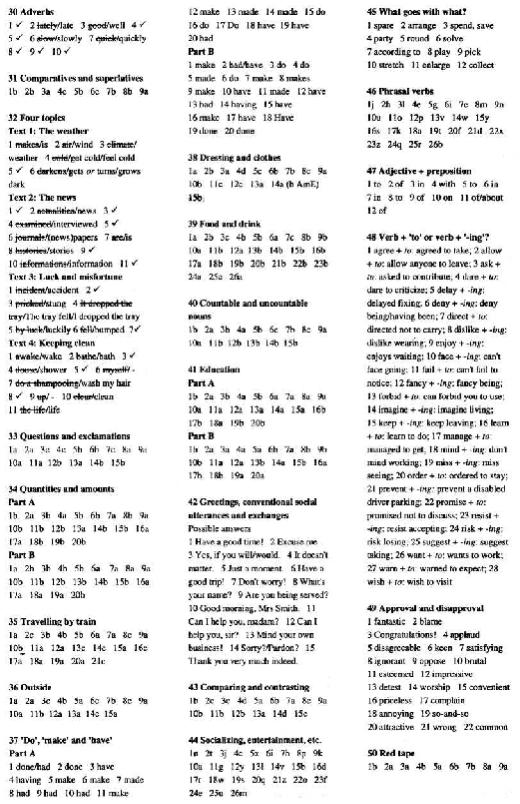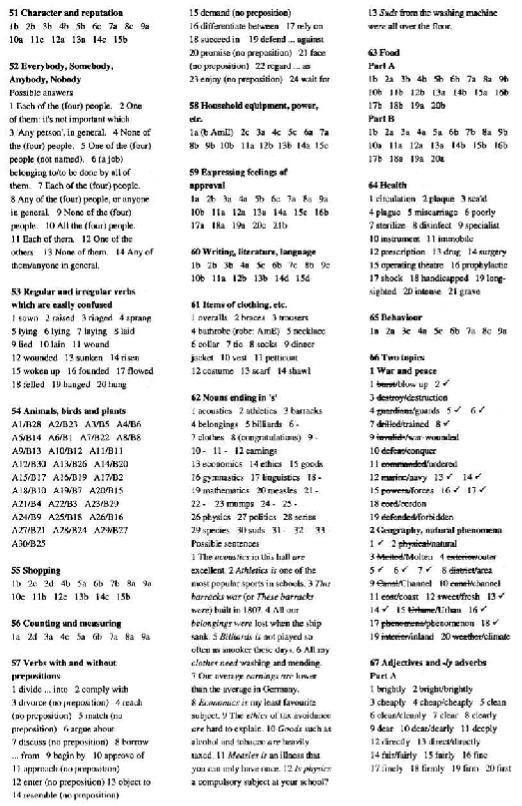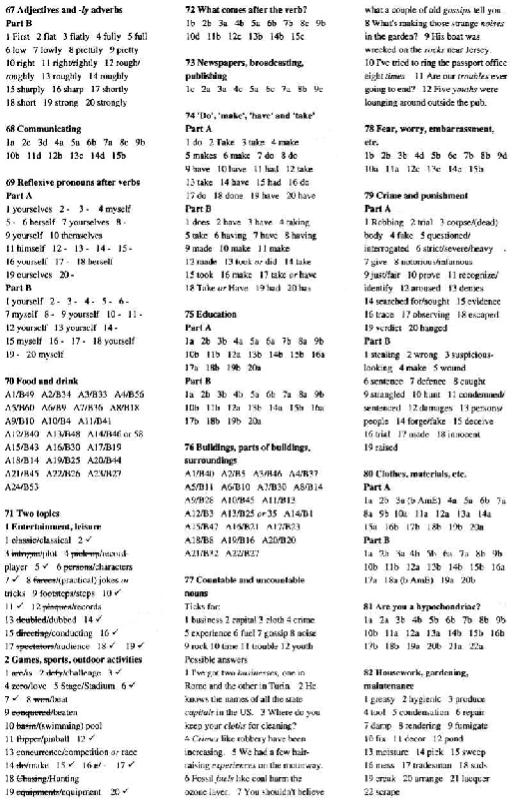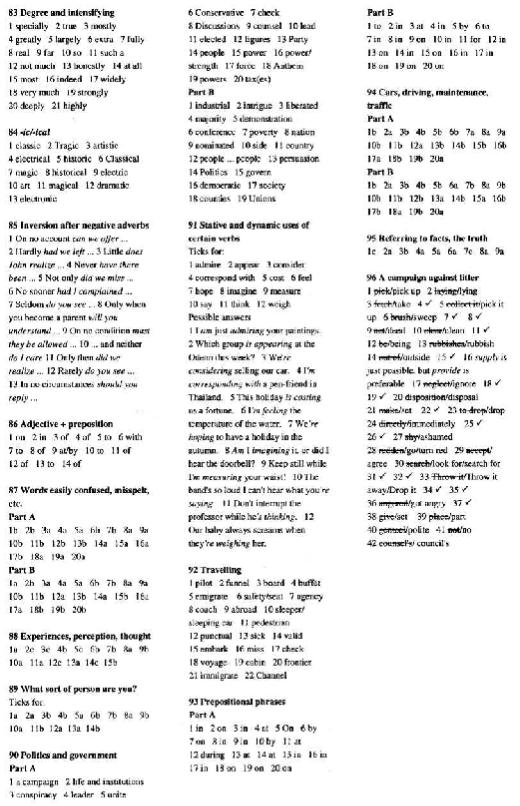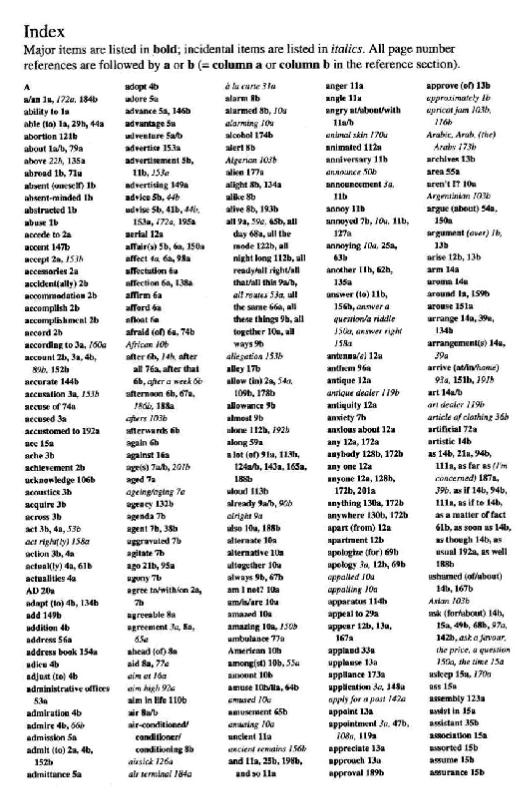
right_wrong_word
.pdf
96 A campaign against litter |
|
|
Read this text. If you find a mistake in a line, cross it out and suggest an alternative. If |
||
there is no mistake, put a tick |
The first two have been done for you. |
|
Our local council is conducting an action |
0 |
|
to reduce the amount of litter in our streets. |
0 |
|
We are all being encouraged to pick |
1 ............................ |
|
any rubbish we see laying in the street |
2 ............................. |
|
and fetch it to the nearest litter bin. |
3 ............................. |
|
If we see anyone drop litter in the street, |
4 ............................. |
|
we're supposed to tell them to collect it. |
5 ............................. |
|
Council workers regularly brush the streets |
6 ............................. |
|
and collect rubbish from big green bins. |
7 ............................. |
|
There are large posters everywhere which say: |
8 ............................. |
|
'Do a good act today! Keep our streets |
9 ............................. |
|
clear! Don't be a Jitterbug!' |
|
10 ............................. |
Of course, it isn't easy to tell people |
11 .............................. |
|
what to do. A lot of people object to be |
12 ............................. |
|
told to pick up their rubbishes. |
|
13 .............................. |
The problem is extremely bad out of |
14 .............................. |
|
fast food restaurants. Though these restaurants kindly |
15 .............................. |
|
supply large bins, a lot of people |
|
16 ............................. |
neglect them and leave their litter in the street. |
17 .............................. |
|
The consumption of food at these places is |
18 .............................. |
|
very great, so it is difficult to control |
19 .............................. |
|
garbage disposition. Girl guides |
|
20 ............................. |
and boy scouts have volunteered to make an example |
21 ............................. |
|
to others. If these girls and boys see |
22 ............................ |
|
anyone letting something to drop |
|
23 ............................. |
they directly pick it up and then they speak |
24 ............................. |
|
very politely to the person who dropped it. |
25 ............................. |
|
'I think this belongs to you,' they say, handing it back. |
26 ............................. |
|
Even the biggest litterbugs feel shy of themselves. |
27 ............................. |
|
They usually redden and accept the litter. |
28 ............................. |
|
They also accept to dispose of it properly |
29 ............................. |
|
and immediately search the nearest rubbish bin. |
30 ............................. |
|
The other day I saw a young mother with her little boy. |
31 ............................. |
|
The boy picked up a dirty ice-cream carton and |
32 ............................. |
|
his mother said, 'That's dirty! Throw it!' |
33 ............................. |
|
A boy scout who was following them said, |
34 ............................. |
|
'No. Give it to me. I'll put it in a bin for you.' |
35 ............................ |
|
The young mother angered. 'I can do that myself,' |
36 ............................. |
|
she said and she took the carton from the scout. |
37 ............................. |
|
Then she decided to give a good example to her son. |
38 ............................. |
|
'We must take place in this campaign, too!' she said. |
39 ............................. |
|
She thanked the scout for being so genteel |
40 ............................ |
|
and he thanked her, too. There's not doubt |
41 ............................. |
|
the counsel's campaign is going to be a great success. |
42 ............................. |
|
|
|
283 |
